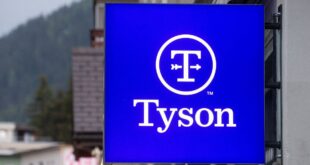Aspinwall Raises Business Privilege Tax
Aspinwall business owners are facing an increase in the business privilege tax they must pay to operate in the borough. The increase was approved by council in a unanimous 8-0 vote. Starting this year, the tax will rise from $100 to $500.
This change follows the advertisement of the ordinance last month and extensive discussions at multiple meetings. Heth Turnquist, the councilman and finance chair, explained that the tax hike is necessary to cover rising costs, including infrastructure upgrades, employee salaries and benefits, and other general expenses. He emphasized that the goal is not to put anyone out of business but rather to ensure that the borough can pay its bills.
However, some business owners have expressed concerns about the sudden and significant increase in the tax. Adriene Rister, owner of Spark Books, questioned how the borough determined the $500 amount and raised concerns about it setting a precedent for future tax hikes. She also criticized borough officials for failing to inform businesses of the increase prior to the meeting. Rister suggested that a gradual increase, such as starting at $250, would have been more manageable for businesses.
To address these concerns, Turnquist highlighted that property owners have already paid around $400 more in real estate taxes due to increases over the past two decades. Inflationary factors were also taken into account in determining the $500 tax. He assured businesses that the borough would work with those who find the tax hike to be a hardship, although specific remedies were not outlined in the ordinance.
Expected Revenue and Future Plans
It is projected that the tax hike will generate at least $48,000 in additional revenue for the borough’s general fund. Last year, only 120 businesses paid the business privilege tax, amounting to $12,000 in total. However, the borough received a list of 300 businesses from Keystone Collections, which includes at-home businesses. The borough is currently collaborating with the collectors to identify tax delinquencies.
In the future, Aspinwall plans to solicit requests for proposals for both delinquent tax collection and business privilege taxes, exploring better options. The borough’s current delinquent tax collector is Pennsylvania Municipal Service.
Conclusion
The decision to raise the business privilege tax in Aspinwall has caused concerns among business owners. While councilmembers acknowledge the hardships this may create, they stress the necessity for increased revenue to cover costs. Business owners and the borough will work together to address any challenges that arise from the tax hike.
Michael DiVittorio is a Tribune-Review staff writer. You can contact Michael at 412-871-2367, mdivittorio@triblive.com or via Twitter .
 Mind Uncharted Explore. Discover. Learn.
Mind Uncharted Explore. Discover. Learn.




